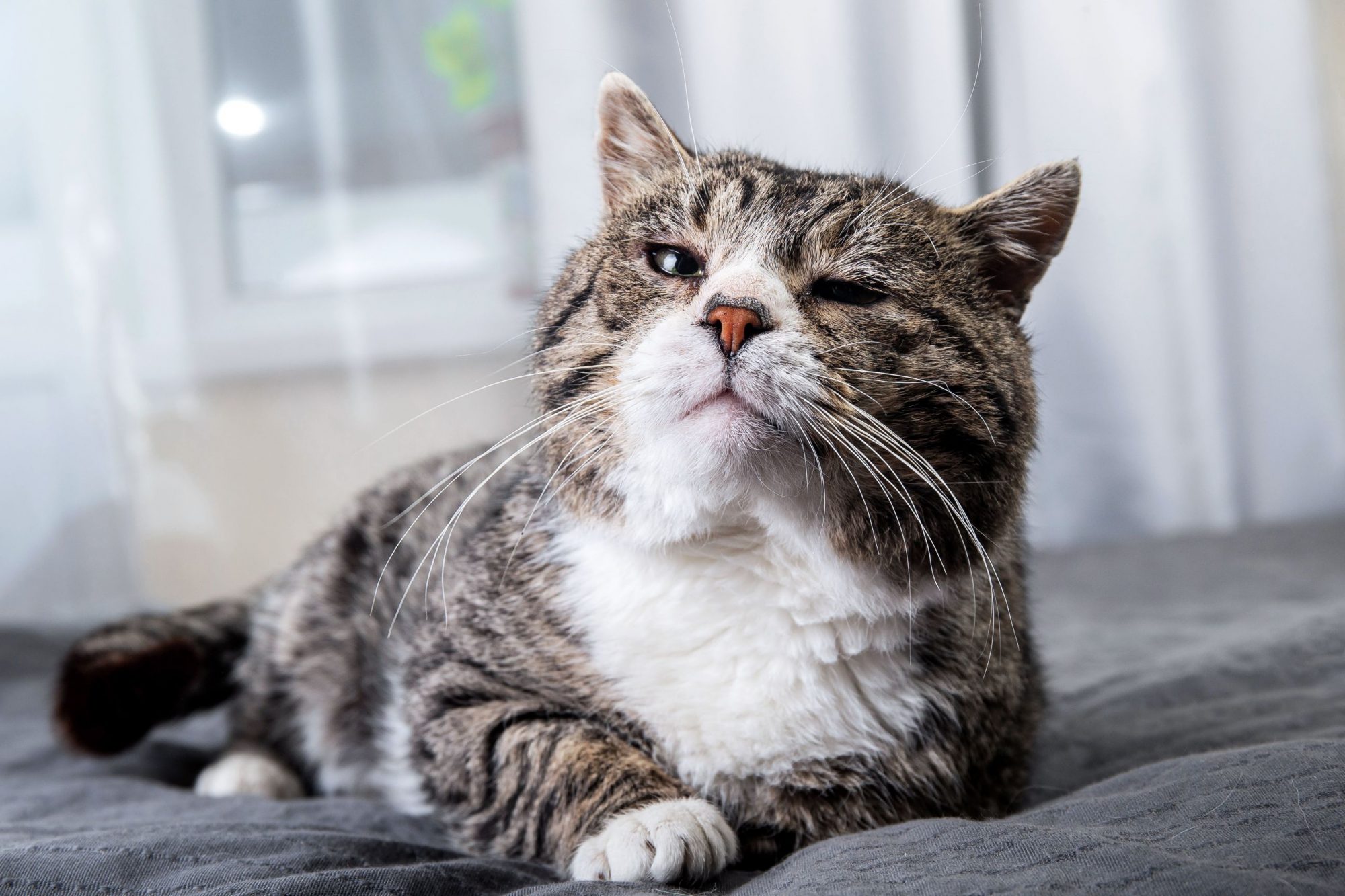
Whether you’ve been with your senior cat since kittenhood, or you adopted them later on in their life, you may have some concerns about what they need. While their dietary considerations and lifestyles can change drastically over time, age-related shifts can be slow and subtle. In order to meet your aging cat where they are (or, even better, anticipate where they’ll be), we offer some insight into the most important elements of senior cat care.
Fine, Not Fine
Most illnesses that affect aging cats cause subtle symptoms and, in some cases, escape the notice of even the most intrepid cat owners. Plus, cats are highly adept at masking symptoms that would otherwise alert owners to developing issues.
Because senior cat care requires a different level of observation and intervention than their younger counterparts, yearly exams should increase to every six months. This frequency can help to prevent age-related conditions.
Additionally, regular exams can lead to bloodwork and other tests that result in early diagnosis, a better outcome, and a longer life.
Causes So Much Stress
Many cats receive limited veterinary care in their adulthood, and the trend only continues into their golden years. We understand how stressful it can be, but the benefits far outweigh the trouble to crate your cat and travel with them to our office.
Preventive care is part of a daily practice that involves your senior cat’s diet and nutrition, exercise, and enrichment. Going one step further, preventive senior cat care also addresses behavioral issues and disrupts the development of common age-related disease. Without a proactive approach to their changing needs, senior cat health can suffer.
Common Ailments
You may have noticed changes in your senior cat’s mobility and flexibility. Because osteoarthritis is so common among aging felines, adjusting items in and around the house can make them more comfortable. For example, ramps, carpeted stairs, heated bedding, and raised bowls are great additions to senior cat care. Laser therapy and/or acupuncture may be prescribed to ease your cat’s pain.
Kidney disease is another common problem facing senior cats. Knowing the signs and acting quickly can make all the difference to your cat’s prognosis. Weight loss, increased thirst, vomiting, and litter box changes are the first warning signs that should never be ignored.
In addition to screening for kidney disease and arthritis at your senior cat’s biannual exam, we’ll pay close attention to the thyroid gland, any weight gain or loss, lumps or bumps, dental health, and their overall behavior. We encourage cat owners to take notes of their cat’s litter box and grooming habits.
Senior Cat Care and Mental Health
Keeping them active and engaged is a crucial aspect of senior cat care. While they may appear stiff or in pain, senior cats can still enjoy and benefit from moving around. Physical and mental stimulation is essential to their health and wellness.
Senior cats can be a little grumpy from time to time, especially if they’re in pain. Owners must take extra precautions regarding kids, visitors, and other household pets. Increasing a senior cat’s exposure to new friends might add to their health and happiness, but it’s not always a transition that happens easily or quickly. Be sure to provide them with their own safe, quiet space.
If you have any questions or concerns about senior cat care, please call us at (408) 402-3071 or schedule an appointment for your white-whiskered kitty. Our staff is always here for your senior cat at The Whole Pet Vet Hospital and Wellness Center.
The post Demystifying Senior Cat Care appeared first on The Whole Pet Vet Hospital and Wellness Center.




















